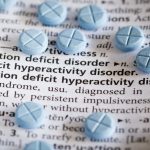
The maker of the ADHD drug Vyvanse has been given approval by the U.S. Drug Enforcement Administration to make more of the medication as a shortage of the critical drugs continues. Following a request from the U.S. Food and Drug Administration in July, the DEA said Thursday that Takeda Pharmaceuticals may now increase its production limit by 24%. “These adjustments are necessary to ensure that the United States has an adequate and uninterrupted supply of lisdexamfetamine [Vyvanse] to meet legitimate patient needs both domestically and globally,” the DEA said in a notice it posted on the approval. ADHD drugs have been in short supply for years. The FDA first warned of a shortage of Teva Pharmaceutical Industries’ Adderall medication in October 2022, as the company was plagued by manufacturing delays. That prompted a spike in demand and subsequent shortage of Takeda’s Vyvanse. Why was the DEA’s approval to boost production needed? Vyvanse (lisdexamfetamine) is classified by the DEA as a schedule II controlled substance, which is applied to drugs considered to have a high likelihood of being abused, so additional prescribing safeguards are put in place. The production limit for lisdexamfetamine was increased by 13, 478 pounds (6,236 kilograms), which includes 3,434 pounds (1,558 kg) to address domestic demand and 10,313 pounds (4,678 kg) for foreign demand for finished dosage medications, according to the DEA. After Takeda lost exclusivity… read on > read on >










-150x150.jpg)






-150x150.jpg)
